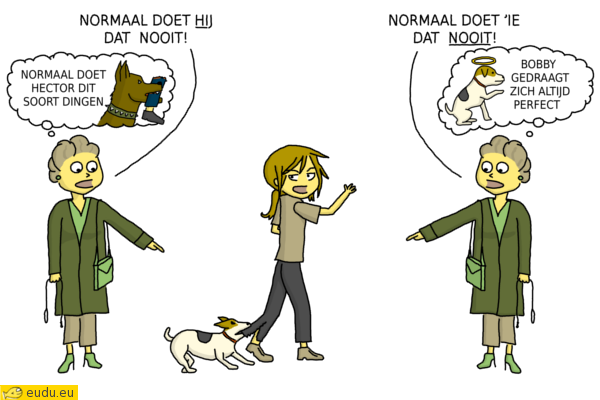When do we use: me, m'n, je, z'n, 't, ze, d'r, we, ...?
These are unstressed forms of personal pronouns and possessive determiners. In spoken language, you use them even more often than the basic forms. There is a subtle difference between the two forms: it depends on which word of the sentence is the most important.
The basic forms
| personal pronoun | possessive determiner | ||
| subject | object | ||

Ik ben Sophie!
|

De buurman haat mij...
|
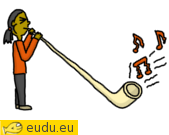
...want dit is mijn nieuwe hobby.
|
|
| 1 | ik | mij | mijn |
| 2 | jij | jou | jouw |
| u | u | uw | |
| 3 | hij | hem | zijn |
| zij | haar | haar | |
| het | het | zijn | |
| 1 | wij | ons | ons / onze |
| 2 | jullie | jullie | jullie |
| 3 | zij | hen / hun | hun |
| possessive determiner | |

...want dit is mijn nieuwe hobby.
|
|
| 1 | mijn |
| 2 | jouw |
| uw | |
| 3 | zijn |
| haar | |
| zijn | |
| 1 | ons / onze |
| 2 | jullie |
| 3 | hun |
You use these basic forms if the stress of the sentence is on these words, so when these words are the most important elements of the sentence.
This is the case by for example contrasts.
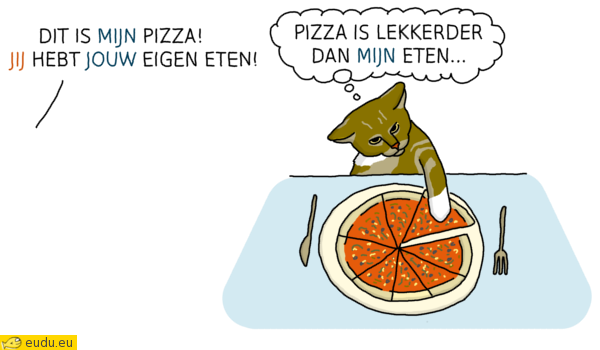
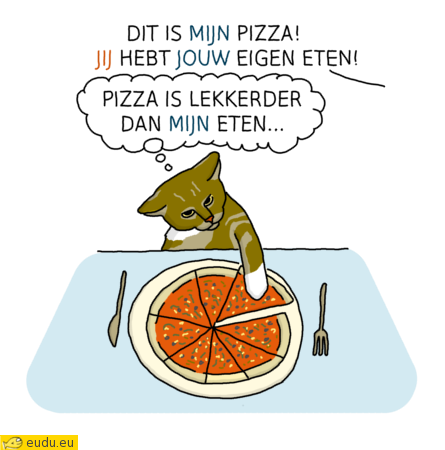
Unstressed forms
Some pronouns and determiners have an unstressed form. There are never used in formal contexts.
| personal pronoun | possessive determiner | ||||||||
| subject | object | ||||||||
| 1 | ik | mij | → | me | mijn | → | m'n | ||
| 2 | jij | → | je | jou | → | je | jouw | → | je |
| 3 | hij | hem | zijn | → | z'n | ||||
| zij | → | ze | haar | haar | |||||
| het | het | zijn | → | z'n | |||||
| 1 | wij | → | we | ons | ons / onze | ||||
| 2 | jullie | jullie | jullie | ||||||
| 3 | zij | → | ze | hen / hun | hun | ||||
| possessive determiner | |||
| 1 | mijn | → | m'n |
| 2 | jouw | → | je |
| 3 | zijn | → | z'n |
| haar | |||
| zijn | → | z'n | |
| 1 | ons / onze | ||
| 2 | jullie | ||
| 3 | hun | ||
The most important word or not?
basic form
The most important word of the (part of the) sentence.
- These forms often have (but not always) an “ij”.
unstressed form
Not the most important word.


- These words have a “e” or a apostrophe. You pronounce these as an /ə/ (schwa).
- Examples:
exception: 'ie = /i/me = /mə/ we = /wə/ 't = /(ə)t/ z'n = /zən/
It changes the meaning of the sentence:
“Weet je wat zij vertelde?”

“Zij” is the most important word.
“Weet je wat ze vertelde?”

“Ze” is not the most important word, so “vertelde” becomes the most important word.
Informal spoken language
Some forms do only exist in informal spoken language. This means that you often hear them, but hardly ever see them written. For example:
| 'k (ik) | 'm (hem) | d'r (haar) |
| 'ie (hij) You can’t start a sentence with 'ie | ||
| 't (het) | ||
